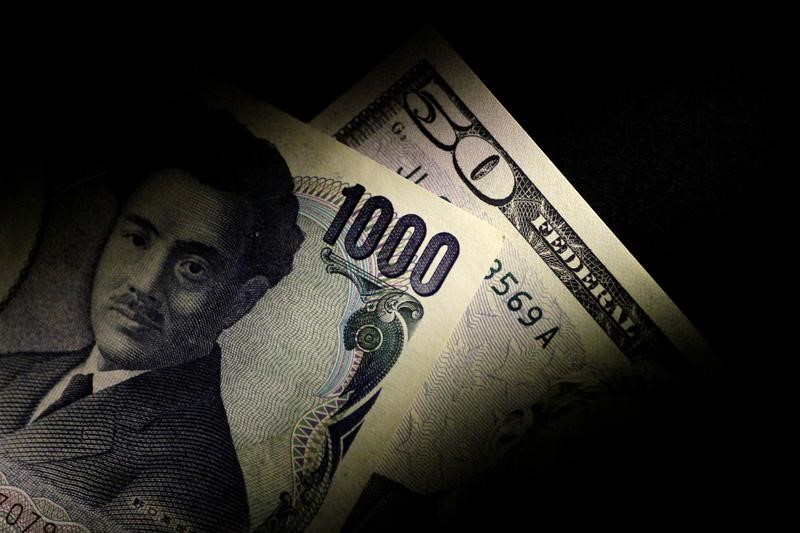By Peter Nurse
Investing.com - The U.S. dollar stabilized in early European trade Friday ahead of the release of key inflation data, while the Japanese yen edged lower after the Bank of Japan on Friday maintained its ultra-low interest rates and dovish stance.
At 03:05 ET (07:05 GMT), the Dollar Index, which tracks the greenback against a basket of six other currencies, traded flat at 110.475, after posting a near 0.8% gain overnight.
The dollar saw some strength on Thursday in the wake of a sharp fall in the euro, which has the heaviest weighting in the index, after the European Central Bank raised rates by 75 basis points, as expected, but took a more dovish tone on its rate outlook.
However, this followed previous weakness as expectations for a pivot by the Federal Reserve to a less aggressive pace of monetary tightening have increased.
With this in mind, traders will focus on the release of the core PCE price index, the Fed’s favorite inflation gauge, later in the session for clues of the central bank policymakers’ intentions at next week’s policy-setting meeting. This is expected to show a month-on-month increase of 0.5% in September, a slight drop from 0.6% the previous month.
USD/JPY rose 0.1% to 146.43 after the BOJ left unchanged its -0.1% target for short-term interest rates and its pledge to guide the 10-year bond yield around 0%.
The Japanese central bank, however, revised up its inflation forecasts through 2024, indicating more near-term pain for the Japanese economy and piling more pressure on the currency.
EUR/USD rose 0.1% to 0.9969, pushing close to parity after sharp losses overnight as the European Central Bank hinted at a less aggressive pace of rate hikes, dropping a reference to increasing rates "over the next several meetings" that had been in its September statement.
France's economy expanded 0.2% in the third quarter, an official preliminary reading showed on Friday, in line with expectations, but a drop from the 0.5% quarterly growth seen in the previous quarter.
GBP/USD fell 0.3% to 1.1526, handing back some of the week’s near 2% gains on optimism that new British Prime Minister Rishi Sunak will adopt a more fiscally prudent stance than his predecessor Liz Truss set out in her brief tenure.
AUD/USD fell 0.2% to 0.6433, NZD/USD rose 0.1% to 0.5832, while USD/CNY rose 0.1% to 7.2367, as China introduced new COVID lockdown measures, increasing uncertainty over the extent of its recovery.
